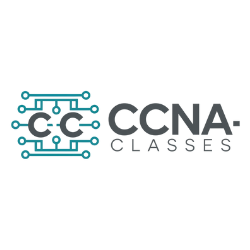Are you feeling overwhelmed trying to balance work and studying for your CCNA certification? Trust me, I’ve been there. As a working professional myself, I understand the challenges of juggling a demanding job while pursuing career growth through certifications. But fear not, because in this article, I’ll share some valuable tips and strategies on how to effectively balance work and CCNA study. With the right mindset and a well-structured plan, you can achieve your professional goals without sacrificing your personal life or compromising on the quality of your study time. So, let’s dive in and discover the secrets to successfully managing both work and CCNA study.
When it comes to striking a balance between work and CCNA study, time management is key. In this fast-paced world, it’s crucial to make the most of every minute you have. In this article, I’ll discuss practical techniques for optimizing your study schedule, such as setting specific study goals, creating a study routine, and leveraging technology to maximize productivity. By implementing these strategies, you’ll be able to make efficient use of your time and make steady progress towards your CCNA certification, all while keeping up with your professional commitments. So, let’s get started on mastering the art of time management for successful work and CCNA study.
Setting Specific Study Goals
When it comes to balancing work and CCNA study effectively, setting specific study goals is crucial. By defining what you want to achieve in your study sessions, you can stay focused and make the most of your limited study time. Here are a few tips to help you set specific study goals:
- Identify your objectives: Take some time to think about what you want to accomplish by studying for the CCNA certification. Are you aiming for a certain score? Do you want to improve your knowledge in specific topics? Once you have a clear understanding of your objectives, you can set study goals that align with them.
- Break it down: The CCNA certification covers a wide range of topics, and it can be overwhelming to tackle everything at once. To make it more manageable, break down the material into smaller, bite-sized chunks. Set goals for each topic or chapter and outline the specific knowledge or skills you want to gain from each.
- Be realistic: It’s important to set goals that are challenging but realistic. Consider your current workload, commitments, and other responsibilities when setting study goals. Avoid overloading yourself with too many tasks or setting unrealistic timelines. Setting achievable goals will keep you motivated and prevent burnout.
- Set deadlines: Having deadlines can create a sense of urgency and help you stay on track. Break down your study goals into smaller tasks and assign deadlines to each. This will give you a clear roadmap and ensure you are making steady progress.
- Track your progress: Regularly monitor your progress towards your study goals. Use a study planner or a digital tool to track the topics you’ve covered, the resources you’ve used, and the hours you’ve dedicated to studying. This will help you identify any gaps in your knowledge and make informed adjustments to your study plan.
By Setting Specific Study Goals, you can make your study sessions more focused and productive. Remember, the key is to find a balance between your work and CCNA study without compromising the quality of either. In the next section, I’ll share some strategies for creating a study routine that fits your busy schedule.
Creating a Study Routine
Having a consistent study routine is crucial when balancing work and CCNA study. It allows you to allocate dedicated time for studying, ensures that you stay on track with your learning goals, and maximizes your productivity. Here are some strategies to help you create an effective study routine:
- Identify your optimal study time: Determine when you are most alert and focused during the day. This could be early in the morning, during lunch breaks, or in the evening. Find a time slot that works best for you and try to stick to it consistently.
- Break down your study material: The CCNA certification covers a wide range of topics, and trying to tackle it all at once can be overwhelming. Divide the material into smaller, manageable chunks. This will make it easier to study and retain the information effectively.
- Set realistic study goals: Clearly define what you want to achieve in each study session. Be specific about the topics you want to cover or the number of pages you want to read. Setting achievable goals will keep you motivated and give you a sense of accomplishment.
- Set deadlines: Establishing deadlines for completing certain chapters or modules will help you stay disciplined and prevent procrastination. Treat these deadlines seriously and hold yourself accountable to ensure steady progress.
- Create a study schedule: Create a weekly or monthly study schedule that outlines the specific times when you will study. Be sure to consider your work schedule and other commitments. By having a set schedule, you can easily allocate time for studying without neglecting your other responsibilities.
- Eliminate distractions: During your dedicated study time, eliminate any distractions that might hinder your focus and productivity. Turn off notifications on your phone, find a quiet place to study, and let others know that you are not to be disturbed.
- Track your progress: Regularly assess your progress and make adjustments to your study routine as needed. Take note of what study methods or techniques are working for you and what needs improvement. Use this feedback to optimize your study routine and achieve better results.
By following these strategies, you can create an effective study routine that fits your busy schedule while ensuring that you allocate enough time and focus to successfully prepare for the CCNA certification. Remember, consistency and discipline are key when it comes to balancing work and CCNA study effectively.
Leveraging Technology for Productivity
In today’s digital age, technology can be a powerful tool for enhancing productivity and efficiently managing both work and CCNA study. Here are some strategies I have found to be effective:
- Utilizing Online Resources: The internet is a vast source of information and study materials for the CCNA certification. Online platforms, such as Cisco’s Learning Network, offer study guides, practice exams, and interactive learning experiences. I have found these resources to be invaluable in deepening my understanding of the concepts and practicing for the exam.
- Mobile Apps for On-the-Go Learning: With the rise of mobile applications, studying for the CCNA certification has never been more convenient. There are numerous apps available that provide flashcards, quizzes, and study notes, allowing me to make the most of even the shortest pockets of free time. I can easily review key concepts while commuting or during lunch breaks, making my study sessions more flexible and efficient.
- Collaborative Tools for Study Groups: Working in a study group can be immensely beneficial for understanding complex topics and sharing different perspectives. Technology facilitates collaboration by providing platforms like Cisco Webex or Microsoft Teams, where group members can communicate, share documents, and discuss challenging concepts. These tools enable seamless collaboration, even if group members are in different locations.
- Time Management Apps: Managing time effectively is crucial when balancing work and CCNA study. Time management apps, such as Trello or Todoist, can help me prioritize tasks, set deadlines, and track progress. By breaking down my study sessions and work tasks into smaller, manageable chunks, I can create a more structured schedule that ensures I am making progress in both areas.
By leveraging technology and incorporating these strategies into my study routine, I have been able to optimize my productivity and successfully balance my work commitments with CCNA preparation. The key is to find the right tools that suit your learning style and preferences, and to use them consistently.
Balancing Work Priorities
One of the biggest challenges in preparing for the CCNA certification while juggling work commitments is finding the right balance between the two. In order to effectively manage both, it’s important to prioritize your work responsibilities and create a plan that allows you to allocate time for studying.
Here are some strategies I’ve found helpful in balancing work priorities while studying for the CCNA certification:
- Set clear goals and objectives. Define what you want to achieve in both your work and CCNA study. This will help you stay focused and prioritize tasks accordingly.
- Create a schedule. Develop a study routine that works for you. Identify pockets of time throughout the day where you can dedicate to studying, such as early mornings, lunch breaks, or evenings. Stick to your schedule as much as possible to establish consistency and ensure you make progress towards your study goals.
- Manage your time effectively. Avoid multitasking and instead focus on one task at a time. Prioritize your work-related tasks based on urgency and importance, and allocate dedicated study time without distractions.
- Delegate when possible. If you have the option to delegate some of your work tasks to others, do so. Delegating can help alleviate some of the workload and free up time for studying.
- Communicate with your employer and colleagues. Let your employer and colleagues know about your CCNA study goals and the steps you are taking to achieve them. This will help set expectations and allow for necessary support and understanding from your work environment.
Remember, finding a balance between work and CCNA study requires careful planning and commitment. By setting clear goals, creating a study routine, managing your time effectively, delegating tasks, and communicating with your employer and colleagues, you can successfully balance both priorities.
Managing Study Time Efficiently
When it comes to juggling work and CCNA study, effective time management is key. Here are some strategies that have helped me manage my study time efficiently:
1. Set Study Goals: Begin by setting specific study goals for each session. This will give you a clear direction and keep you focused. Whether it’s completing a chapter or mastering a set of practice questions, having defined goals will boost your productivity.
2. Create a Study Routine: Establishing a study routine can help you stay disciplined and make the most of your available time. Determine the best time of day to study and dedicate a specific block of time to it. Whether it’s in the morning, during lunch breaks, or in the evening, consistency is key.
3. Utilize Technology: Leverage technology to enhance your study experience. There are plenty of online resources, such as video tutorials and practice exams, that can supplement your learning. Take advantage of mobile apps that allow you to study on-the-go, making productive use of your commute or downtime.
4. Join Study Groups: Collaborating with others who are also preparing for the CCNA exam can be highly beneficial. Join study groups or online forums where you can discuss concepts, exchange insights, and clarify doubts. This can enhance your understanding of the material and provide a support network.
5. Use Time Management Apps: Utilize time management apps to keep track of your study time and progress. These apps can help you set study reminders, create a study schedule, and monitor how effectively you’re utilizing your time. This way, you can make adjustments as needed and stay on track.
Remember, everyone’s approach to managing study time differs, so find what works best for you. These strategies have helped me stay organized and make the most of my study hours. By setting study goals, creating a routine, leveraging technology, joining study groups, and using time management apps, you can effectively balance work and CCNA study without feeling overwhelmed.
Stay tuned for the next section where I’ll provide strategies for prioritizing work commitments and communicating effectively with employers and colleagues to ensure a successful balance between work and CCNA preparation.
Conclusion
Balancing work and studying for the CCNA certification can be challenging, but with the right strategies and tools, it is possible to achieve success. By effectively managing your time and prioritizing your commitments, you can optimize productivity and make the most of your study hours.
One key strategy is to leverage technology for productivity. Utilize online resources, mobile apps, and collaborative tools to enhance your learning experience. Find the tools that suit your learning style and preferences, and use them consistently to stay organized and focused.
Additionally, it is important to set clear goals and objectives, create a schedule, and manage your time effectively. Delegate tasks when necessary and communicate with your employer and colleagues to ensure a balance between work and CCNA study.
By setting study goals, creating a study routine, joining study groups, and using time management apps, you can stay organized and make the most of your study time. With careful planning and commitment, you can successfully balance work commitments with CCNA preparation.
Remember, finding a balance between work and CCNA study requires dedication and discipline. By implementing these strategies, you can achieve your goals and excel in both areas. Good luck on your CCNA journey!





